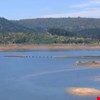
Australia implemented a series of reforms to the water sector in the State of Queensland, including the use of a ‘whole of river basin’ strategic plan approach within which local resource operation plans are prepared and implemented. The key lesson learnt is that an incremental approach, with water planning developing in “bite-sized chunks” allowed government to be flexible in response to changing circumstances.

In Australia, a new approach to water management was needed to allow imported water to be used for irrigation without increasing the salinity of the soils or groundwater. Action was taken to develop a framework to enable irrigators to identify and to manage the environmental risks associated with the use of River Murray water for irrigation. The key lesson is that a salt management strategy is relevant wherever there are plans to irrigate land.

Activities such as horticulture and tourism around the Great Barrier Reef create sediment, nutrient and pesticide runoff, placing increased pressure on the ecosystem. The World Wildlife Fund has taken action, predominantly by raising awareness. The key lesson is how a carefully orchestrated campaign can convince decision-makers of the importance of integrated river basin management as a means of reducing land-based marine pollution.

Kalkallo project was the first large scale construction project in Australia attempted to harvest and treat stormwater to a standard acceptable for direct injection into water supply system. Because the project was innovative there was no regulatory framework dictating the rules of the game. That was considered as a barrier to move forward. The project turned out to display a high degree of success in some policy dimensions while a negligible degree in some others.

The Murray-Darling Basin was subjected to widespread environmental degradation. In response to this problem, the Murray-Darling Basin Commission was established in January 1988 under the Murray-Darling Basin Agreement, focusing on protecting and improving water quality. The key lesson is that the participatory approach used with its Community Advisory Committee has helped the Commission to be successful in winning and maintaining community interest, involvement and support.